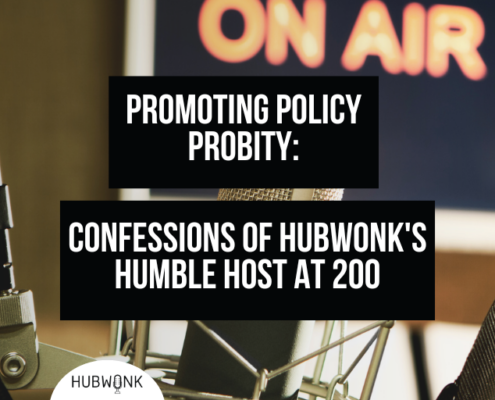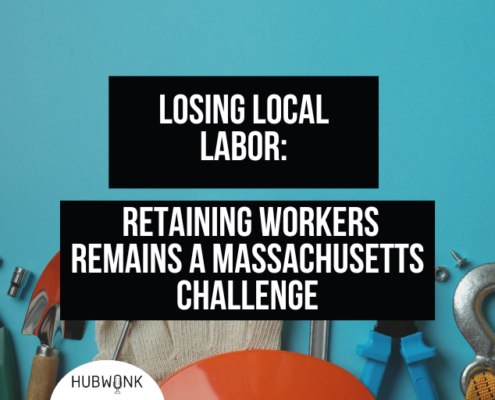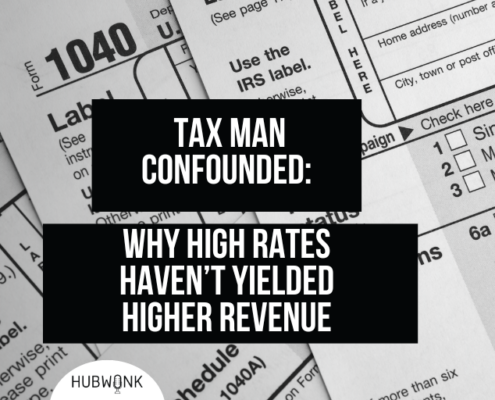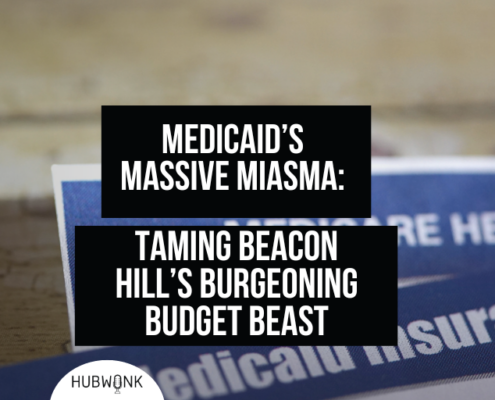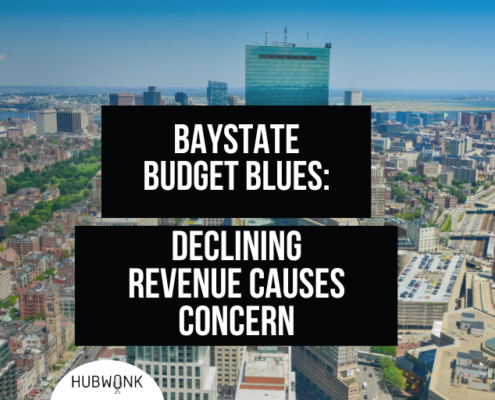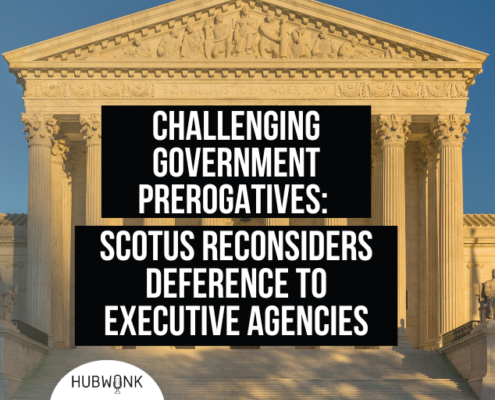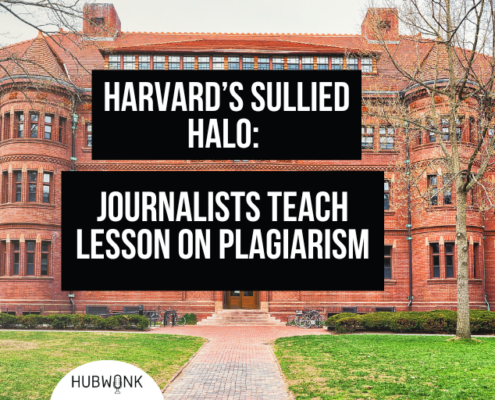Clearing Boston’s Throat: What the I-90 Allston Project Portends for Metro West Commuters
Join hosts Joe Selvaggi and Pioneer Institute’s Mary Connaughton, and guest, former Mass. Secretary of Transportation Jim Aloisi, as they discuss the I90 Allston Multimodal Project, its long-term benefits, and their concerns for the metro west commuters and communities during the project’s decade-long construction.
Related content:
The Boston Globe: “During construction, the Allston Mass. Pike project must address commuters’ needs”
Interview guest:
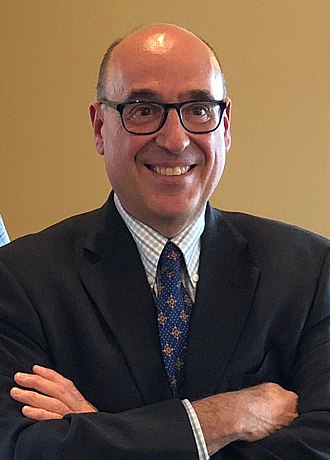 Jim Aloisi is a Boston-based lecturer, writer, transit advocate and strategic consultant. Jim was a partner at two prominent Boston law firms, Hill & Barlow and Goulston & Storrs, where he led a Public Law & Policy practice. He played a central role in the creation of Boston’s Rose Fitzgerald Kennedy Greenway. In addition to serving as Massachusetts Secretary of Transportation in the Administration of Governor Deval Patrick, Jim served on the Boston Human Rights Commission, the Massachusetts Transportation Finance Commission and the Massachusetts Port Authority Board.
Jim Aloisi is a Boston-based lecturer, writer, transit advocate and strategic consultant. Jim was a partner at two prominent Boston law firms, Hill & Barlow and Goulston & Storrs, where he led a Public Law & Policy practice. He played a central role in the creation of Boston’s Rose Fitzgerald Kennedy Greenway. In addition to serving as Massachusetts Secretary of Transportation in the Administration of Governor Deval Patrick, Jim served on the Boston Human Rights Commission, the Massachusetts Transportation Finance Commission and the Massachusetts Port Authority Board.
As Massachusetts Transportation Secretary, Jim guided a landmark transportation reform and restructuring initiative and authorized a pioneering effort to release a complete MBTA data set at no cost, to improve transparency and encourage development of web-based and mobile applications. He also established Boston’s Silver Line 4 service using federal stimulus funds to improve transit connectivity and social equity. Jim is the author of four books, including The Big Dig, The Vidal Lecture, and Massport at 60, and is a regular contributor to Commonwealth Magazine. He serves on the Board of TransitMatters, a Boston-based transit advocacy group.
Host & Co-host:
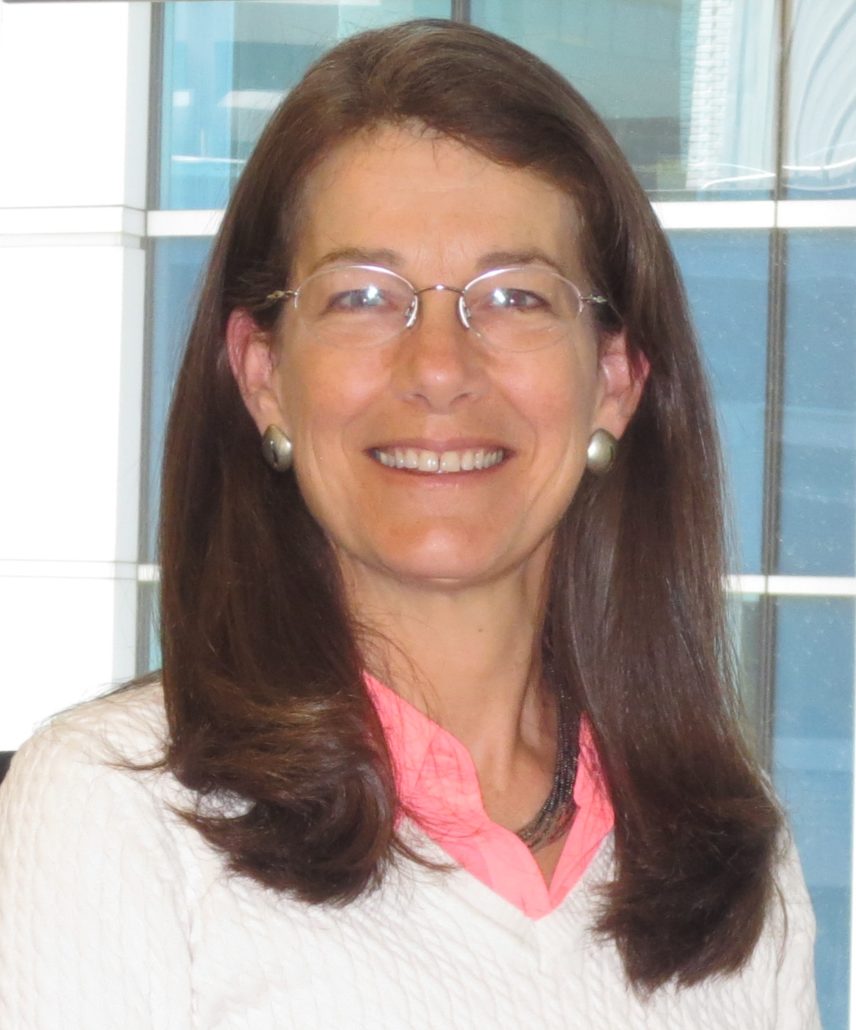 Mary Z. Connaughton is Pioneer’s Director of Government Transparency and Director of Finance and Administration. Prior to joining Pioneer, she was a partner in the business development firm of Ascentage Group. Her professional experience also includes being an accounting instructor at Framingham State University and senior manager on the audit staff at Ernst and Young in Boston.
Mary Z. Connaughton is Pioneer’s Director of Government Transparency and Director of Finance and Administration. Prior to joining Pioneer, she was a partner in the business development firm of Ascentage Group. Her professional experience also includes being an accounting instructor at Framingham State University and senior manager on the audit staff at Ernst and Young in Boston.
Mary served on the former Massachusetts Turnpike Authority board of directors. She was a member of the Massachusetts Commission on Judicial Conduct and was on the board of directors of Commonwealth Corporation. She was Chief Financial Officer of the Massachusetts State Lottery and served in the State Treasurer’s Office. Mary was formerly vice chair of the Framingham Finance Committee. Mary earned an M.B.A. from Assumption College in 2009, as well as a B.B.A. in Accounting and a B.A. in English from the University of Massachusetts at Amherst.
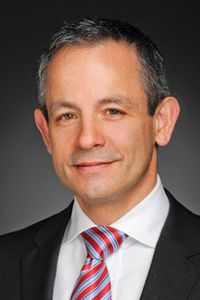 Joe Selvaggi is the host of HubWonk. Joe is a US Navy veteran, entrepreneur, investment professional, former candidate for US Congress, and political commentator. He holds a Bachelor of Science in Engineering from Worcester Polytechnic Institute and a Master of Public Administration from Harvard Kennedy School. He lives in Boston.
Joe Selvaggi is the host of HubWonk. Joe is a US Navy veteran, entrepreneur, investment professional, former candidate for US Congress, and political commentator. He holds a Bachelor of Science in Engineering from Worcester Polytechnic Institute and a Master of Public Administration from Harvard Kennedy School. He lives in Boston.
Get new episodes of Hubwonk in your inbox!
Related Posts

